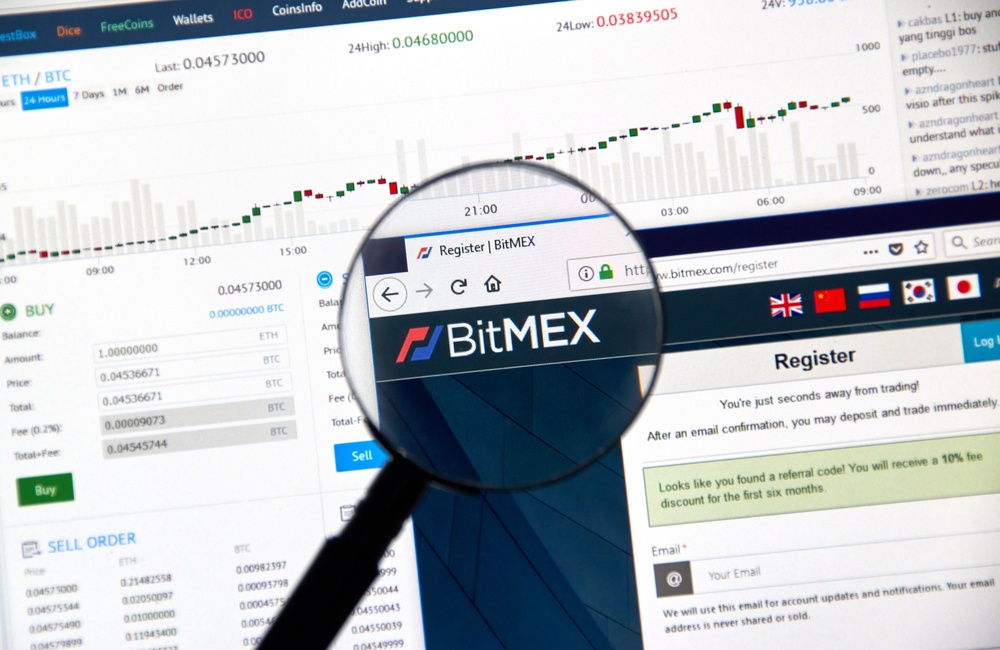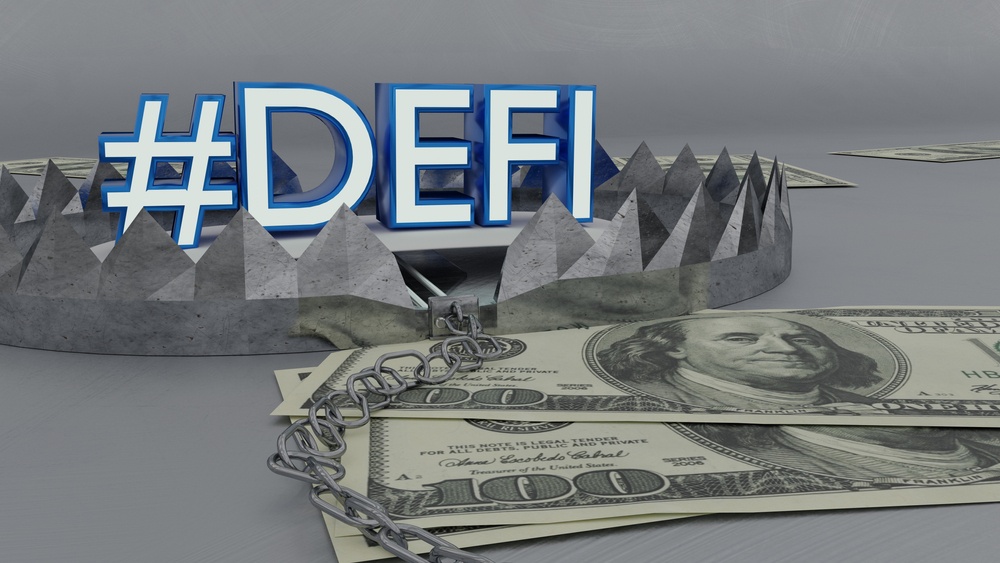The Crypto Industry Faces Off with Regulators and Crypto Hackers

A lot has been said about the volatility of cryptocurrency and how such assets are unreliable in times of crisis. However, the latest show of resilience by digital assets in the face of a series of unpalatable news is an indication that this notion no longer applies to the market. The crypto market has masterfully dodged a security scandal, withstood the regulatory hunt of one of its top crypto exchanges, and news that one of the most powerful world leaders had contracted coronavirus hardly had an impact on the prices of assets.
Although this is a testament to the market’s growing maturity, it does not necessarily mean that these events had no substantial impact on the crypto narrative other than prices, of course. Here, I will explore the different ways these events affect the crypto industry.
A Rough Last Couple of Weeks for the Crypto Industry

A Rough Last Couple of Weeks for the Crypto Industry
In a week that marked yet another negative milestone in terms of regulatory and security complacency of crypto exchanges, the crypto market has had to weather a wave of storms that in yesteryears would have rocked it to the core. First, KuCoin was the latest victim of the unrelenting barrages of crypto attacks as the crypto exchange lost over $200 million worth of digital assets to a coordinated hack. In the aftermath of the hack, the crypto exchange has partnered with a myriad of security firms, other exchanges, and the development teams of affected crypto assets to limit the damages done.
Already, executives of the company have come out to say that efforts to reverse some of the money stolen have begun to yield fruits. Charlie Cai, the media manager at KuCoin, in an interview with Cointelegraph, explained:

Charlie Cai, the media manager at KuCoin
“Following the incident, KuCoin is acting quickly and transparently to deal with it. We are trying our best to mitigate the impact of the incident by working with many blockchain projects, security firms and crypto exchanges.”
According to reports and details from the KuCoin team, several ERC 20 token projects affected by the theft have reacted to find ways to render the stash of coins stolen useless at the very least. A report on Cointelegraph documented the efforts from these projects and revealed the number of coins each is trying to recover. The report reads:
“In addition to the $33 million in tokens crypto exchange Bitfinex and Tether (USDT) reportedly froze, KuCoin’s Lyu stated the entities stopped an additional 2 million in USDT on OMNI and TRON. The CEO said KuCoin coordinated with VIDT_Datalink to freeze and recover $14 million of the stolen 14.49 million VIDT tokens as well as worked with Covesting to freeze and recover $560,000 COV tokens. Akropolis has also reportedly paused all AKRO transactions and blacklisted the hacker’s known address.”
Moreover, security and AML-focused firm, Chanalysis, have responded to KuCoin’s hack by expanding the scope of their operations to the Asian Pacific region and carefully investigating the events before and after the attack. The firm tweeted:
“KuCoin hack is yet another ex that crypto exchanges, law enforcement & financial institutions all over the world need investigations & compliance tools. We’re thrilled to announce new offices in Singapore & Tokyo to better service customers in APAC.”
Per the information from Madeleine Kennedy, senior director of communications at Chainalysis, it seems that this decision has begun to generate result:

Charlie Cai, the media manager at KuCoin
“Some funds were deposited to exchanges, some to coin swapping services, and more to DEXs, but much of the funds remain unspent. Relevant addresses are labeled in Chainalysis Reactor, KYT and Kryptos, and we are continuing to monitor their movements.”
However, regardless of the efforts from different quarters, the attackers have managed to launder some of the proceeds from the hack through decentralized exchanges like Uniswap. Unlike other projects directly and indirectly involved or affected by this event, it is impossible to censor or freeze users’ activities on Uniswap, which prides itself as a non-custodial platform unsusceptible to censorship-resistant systems. John Jefferies, the chief financial analyst at CipherTrace, explained this predicament better in an interview with Cointelegraph:

John Jefferies, the chief financial analyst at CipherTrace
“This was the first high profile case of a DEX, Uniswap, being used as a money mixer. Unlike centralized exchanges, a DEX can’t freeze funds — only specific projects can. Another significant impact here is that the theft of the tokens directly impacted the firms of these stolen tokens, such as Crypterium and Tether because the hack included CRPT tokens and Tether on both EOS and Ethereum blockchains.”
More importantly, some security experts have highlighted red flags that suggest that KuCoin may have had a hand in the whole saga. According to a report detailing two or more unconvincing business moves on the part of KuCoin, the crypto exchange was on the verge of facing class-action lawsuits in March for allegedly providing its customers with false or misleading statements and dealing with unlicensed securities. Also, an unconvincing business restructuring around the same time caused some to question the legitimacy of the digital asset exchange.
Others believe that the crypto exchange is one of many that utilize opaque security systems and practices as opposed to standards like auditing procedures such as ISO 27001 and SOC2. More crypto entities, particularly those providing custody solutions, have to embrace these standards to ensure that incidents like this are few and far between. However, as noted by many, this is easier said than done. This is because the crypto exchange sector is not subject to any form of industry-wide security and audit standards. In contrast, depending on the jurisdictions that an exchange serves, it has some level of autonomy as to which practices and systems it deems necessary to keep users safe.
U.S. Regulators Has Bitmex On Their Radar

Two days after the unfortunate turn of events that saw KuCoin lose potentially the majority of its crypto holdings, U.S. regulators officially filed charges against Bitmex. The Commodity Futures Trading Commission (CFTC) revealed on its website that it has filed a “civil enforcement action in the U.S. District Court for the Southern District of New York charging five entities and three individuals that own and operate the BitMEX trading platform with operating an unregistered trading platform and violating multiple CFTC regulations, including failing to implement required anti-money laundering procedures.”
Apparently, the commission believes that Bitmex has failed to implement standard KYC and AML procedures and has continued to serve U.S. customers without registering as a “designated contract market or swap execution facility” and a futures commission merchant. The announcement reads:
“The complaint alleges that from at least November 2014 through the present, and at the direction of Hayes, Delo, and Reed, BitMEX has illegally offered leveraged retail commodity transactions, futures, options, and swaps on cryptocurrencies including bitcoin, ether, and litecoin, allowing traders to use leverage of up to 100 to 1 when entering into transactions on its platform. According to the complaint, BitMEX has facilitated cryptocurrency derivatives transactions with an aggregate notional value of trillions of dollars, and has earned fees of more than over $1 billion since beginning operations in 2014. Yet, as alleged in the complaint, BitMEX has failed to implement the most basic compliance procedures required of financial institutions that impact U.S. markets.”
In a separate suit, the Department of Justice DoJ has indicted three senior executives of Bitmex, including the founder, Arthur Hayes, for violating the Bank Secrecy Act. Looking at this publication and the choice of words used, it is clear the CFTC believes that digital assets like Bitcoin, Ether, and Litecoin are commodities like Gold and silver.
Therefore, platforms enabling the transfer and exchange of these assets are within its jurisdiction. And in the next couple of months, I expect more exchanges to be at the receiving end of similar charges, even though they claim not to provide services to U.S. customers. As explained by Kollen Post, the outcome of this lawsuit will inadvertently determine the faith of offshore entities offering crypto custodial services. He noted:

Kollen Post
“One theme that the Bitmex case will certainly explore extensively is defining an exchange’s duty to establish itself as outside the U.S. Bitmex, with its 100x leveraged trading and its founder, Arthur Hayes, joking about bribing Seychelles authorities with coconuts, may well have drawn the ire of authorities out of hubris. To Bitmex’s point, it seems the exchange did indeed block U.S. IP addresses, but crypto investors are quite VPN-forward. Block.one faced a similar issue before the SEC with its initial coin offering for EOS. But it’s clearly a challenge to keep crypto from crossing borders. The question is, will every company that handles crypto ultimately have to register with the most stringent regulatory regimes?”
In response, Bitmex has released a statement denying these allegations and has revealed that it will continue to facilitate trades. The statement reads:
“We strongly disagree with the U.S. government’s heavy-handed decision to bring these charges, and intend to defend the allegations vigorously. From our early days as a start-up, we have always sought to comply with applicable U.S. laws, as those laws were understood at the time and based on available guidance.”
Are DeFi Protocols Next?

Are DeFi Protocols Next
And while this may seem to affect centralized entities predominantly, the decision to target not just the company deemed to be illegally operating in the U.S. shows that the decentralized counterparts may come under similar regulatory scrutiny. For instance, the fact that hackers can readily exploit the modalities of Uniswap to launder money could force regulators to take action. Although it is impossible to take a class action against such protocols, it is possible to target the founders, the developers involved, and the governing team. This approach is even more threatening to so-called decentralized solutions that still rely on elements of centralization. According to DeFi Watch, 12 out of a total of 15 protocols analyzed recently still utilize ‘God Mode’ admin keys that allow developers to carry out significant changes to smart contract codes, users’ balance, and so on.
While responding to this threat, Stani Kulechov, co-founder of Aave, has come forward to downplay the ramifications for developing and promoting DeFI systems. He explained that it is possible to achieve the sort of regulatory shield associated with Bitcoin and Ethereum by implementing a viable decentralized governance framework from the get-go:

Stani Kulechov, co-founder of Aave
“For DeFi builders it might be relevant to have from the start a clear path towards decentralized governance similarly what Ethereum and Bitcoin is today, where there is no centrally controlled entity governing these protocols by design. In the end also remember who you are building for and make safe products for all stakeholders.”
Likewise, some have argued that the working principle of most DeFi protocols makes these entities AML compliant than the centralized versions. These proponents expressed that it is possible to track the transactions and activities of DeFI users. Hence, there is no reason they will come under pressure from regulators.
However, note that Aave falls under the category of DeFi protocols with admin keys. And as disclosed by Chris Blec, founder of DeFi Watch, a majority of them, including Aave, do little to explain the ramifications of such governance systems. For instance, Aave only added an opaque warning on its website without explaining how it could affect users:
“Aave will keep ownership of the protocol in these early days in order to ensure that the protocol remains secure if any issues arise.”
The Crypto Market Is Unperturbed

Remarkably, this scandal did not have as much impact on the price of cryptocurrency as it would have a year ago. Crypto analysts, like Marcel Pechman, have stressed that the resilience of the crypto market is a testament to the bullish stance of investors. Pechman agreed that a similar incident would have had major impacts on the prices of digital assets in the past:
“There is no better indicator of a bull market than bad news. Regardless of BitMEX’s diminishing importance in volume and pricing, a government-backed action against a top-5 exchange would certainly have dampened the price had market sentiment been neutral or negative. Investors and crypto advocates should also factor in KuCoin’s $150 million hack just 6 days ago. It literally had zero impact on Bitcoin price at the time. Now imagine those events happening a year ago, when BTC was in a downtrend after a failed $14K test as followed by a top formation at $12K.”
